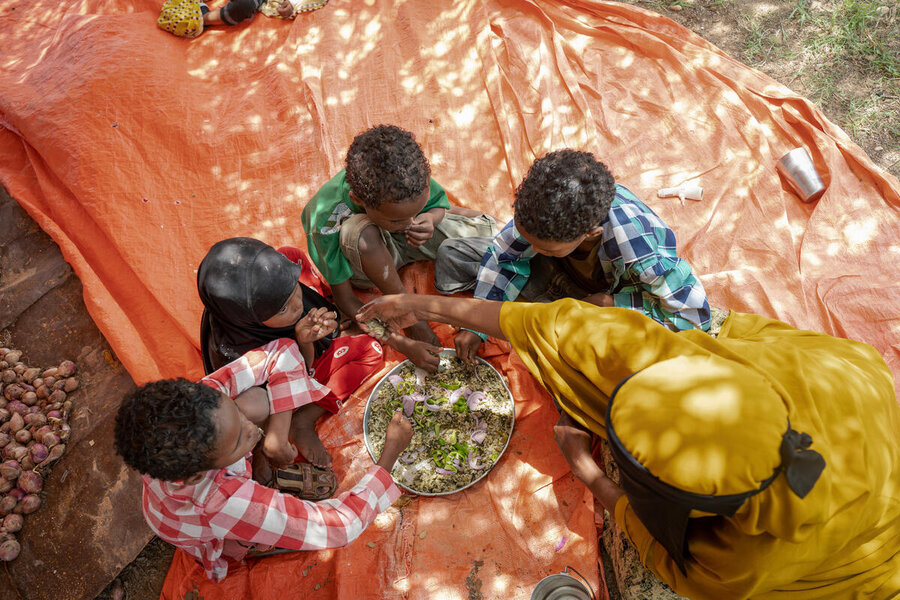
Children's laughter rings out as Fartun Abdi Warsame prepares her family's breakfast of rice and the vegetables - lentils, peppers, onions and tomatoes - that she grows on her farm in Somalia's northeastern Puntland region. In a field nearby, her children and nephews alternate between playing with a bright yellow wheelbarrow and swinging from the wooden planks supporting their home of corrugated iron sheeting.
"All I know is being a farmer, and I love it," says Warsame, the family breadwinner, of her 15 years weathering the region's rough cycle of climate shocks. "Some people might believe the farms here don't produce anything, but we are slowly convincing them that their land is rich and anything they farm can grow."
Taking on drought
Somalis traditionally herded animals like camels, goats and sheep, and in many places, still do. But as climate change ushers in longer and more frequent dry spells, farming - historically concentrated in the country's southern riverside communities - is increasingly being seen as a more durable alternative. Last year, Somalia emerged from its longest drought in four decades, which killed millions of animals and dried up all-important pasture lands and water sources.
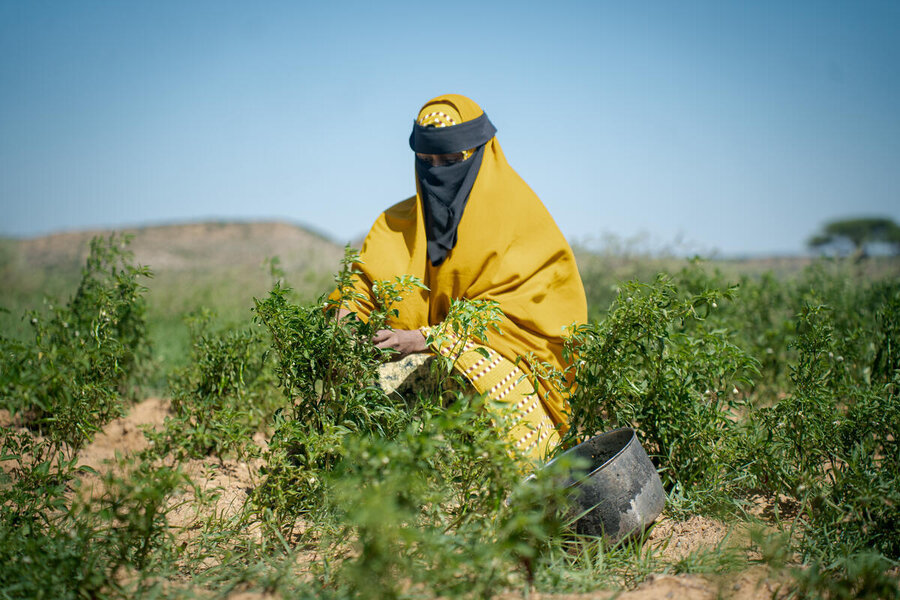
Agriculture is gaining ground even in the driest parts of the country - like semi-arid Puntland, which faces other nature-based threats, from locust infestations to flash floods. Helping to power the change - and the resilience of hundreds of smallholder farmers like Warsame - is a World Food Programme (WFP)-supported project aimed at boosting agriculture and incomes.
Empowering communities
Known as Kobciye ('uplift' in the Somali language), the initiative provides 3,000 farmers in three Somali states - Puntland, Jubaland, Galmudug - equipment such as tractors, solar-powered water pump systems and fencing. In partnership with the Government of Somalia, it gives them the tools to better cope with climate challenges, opens up new livelihood opportunities such as food processing, and improves their access to markets.
"Through the project, we are not just providing tools and training - we are empowering communities to believe in the potential of their land and their ability to produce food sustainably," says WFP Country Director El-Khidir Daloum. "This shift in mindsets is key to securing a food-secure future for Somalia."
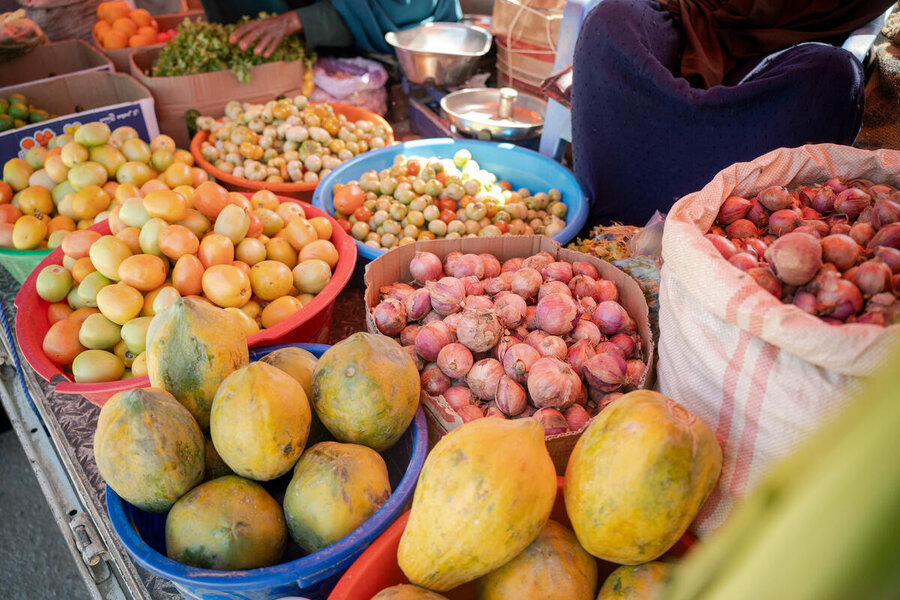
Some of the results - guava, spinach, chillies and watermelon - are sprouting in Warsame's fields. They draw wonder and disbelief at local markets, where traders are long accustomed to selling produce trucked in from the capital, Mogadishu. The women's cooperative she leads also supplies produce to businesses and WFP-supported schools in Puntland's Garowe district, where she lives. Its harvests illustrate what's possible in Somalia.
"As farmers, we like to showcase our crops, to prove they were grown on our rich lands," says Warsame, who plans to add corn and millet to her produce.
Changing attitudes
"The biggest achievement of the Kobciye project is the change in attitudes within the local population," says Mohammed Sheikh Yusuf, senior technical adviser at Somalia's Federal Ministry of Agriculture and Irrigation. "When people know they can produce their own food, can generate their own income and their land is productive, they readily switch from a nomadic lifestyle to a more sedentary farming or agropastoralist one - transforming their lives and livelihoods."
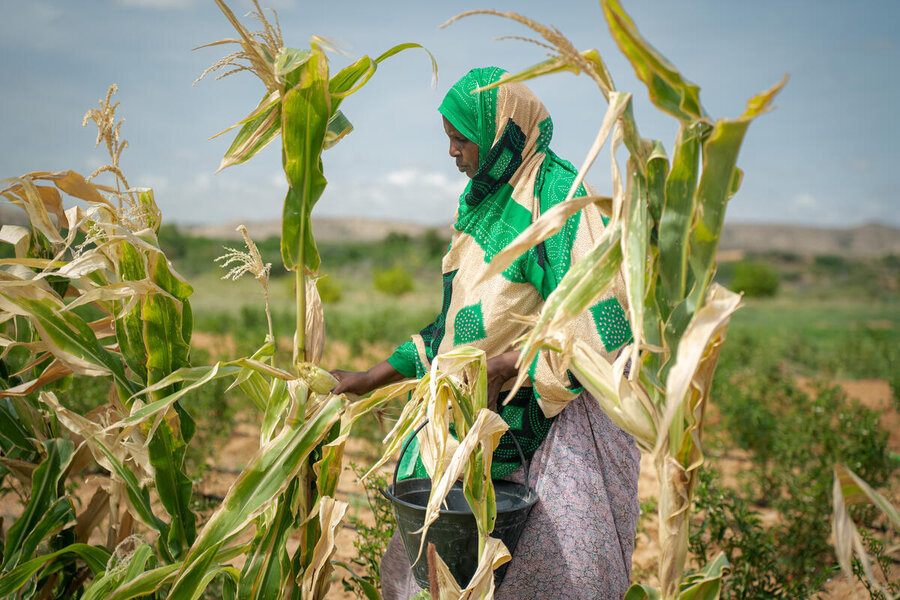
Safiyo Mohamud Said, also from Garowe, is witnessing those changes first-hand. Originally from a nomadic family, she turned from herding to farming in 2012, and now grows papayas, guavas, watermelon, corn and tomatoes on her small plot of land. Like Warsame, Mohamud is the main breadwinner for a family that includes many children and grandchildren.
"I love farming because it sustains both my livelihood and our animals' well-being, which is why we're passionate about it," says Mohamud, who continues to raise goats and sheep.
"Before, we didn't realize that fruits like watermelon could be grown here," she says, adding that when people learn the produce for sale is also locally grown, "they are shocked."
Even so, agriculture is a tough business - losses can be heavy, while accessing water is especially challenging.
In the central Somali region of Galmudug, with the same dry conditions as Puntland, the Kobciye project gives communities access to water through a broad approach that includes drip irrigation and boreholes, and factors in land use, vegetation and other environmental concerns.
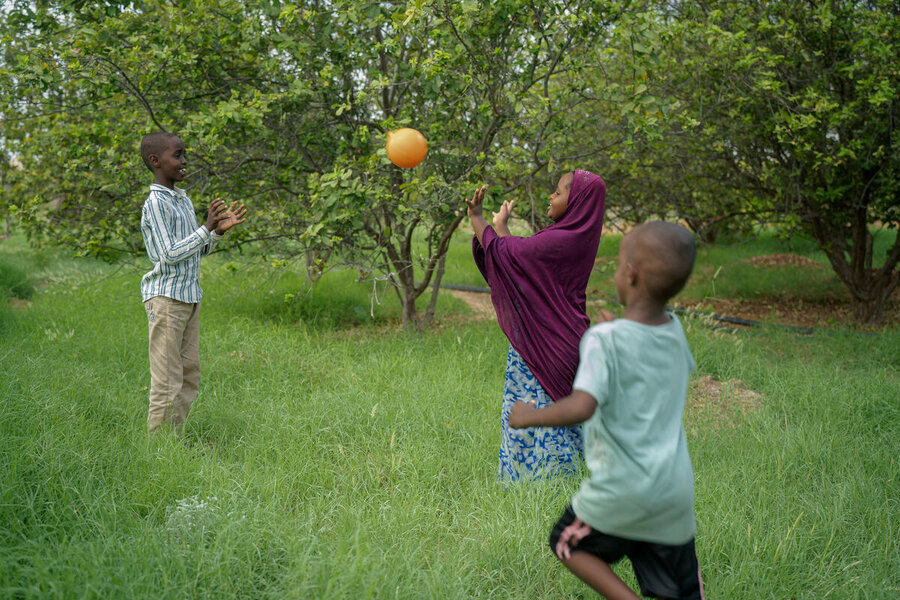
"This is the first time that farmers will have had access to fresh water in 100 years," says Ibrahim Abdulkadir, a local government energy and water head, referring to one participating village where people had previously been drinking brackish water.
Farmers aren't just learning to use water wisely. At Warsame's farm, nothing goes to waste. "As you can see, my farm has no trash, even from onions," she says, describing how she uses onion skins and other crop waste - even coal and ashes - to produce compost.
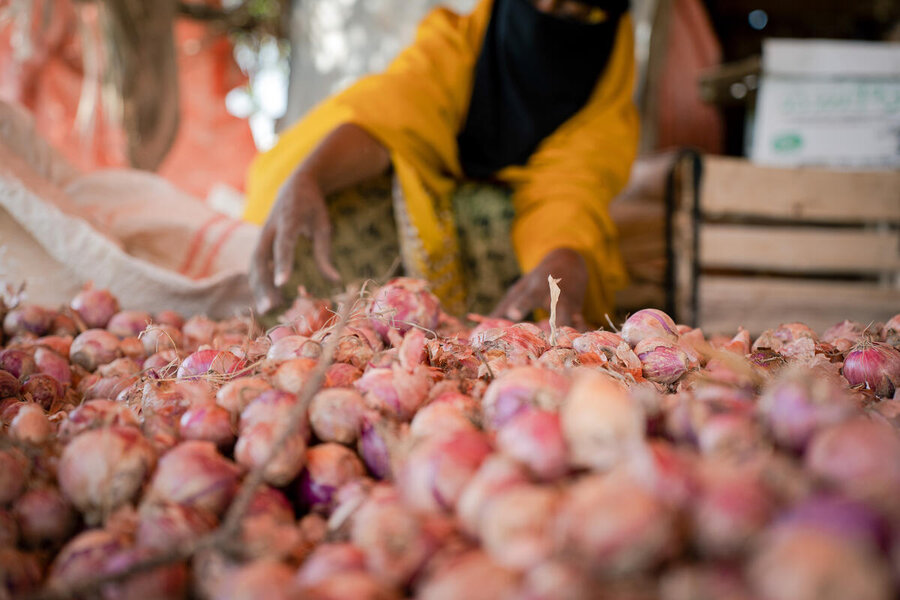
Warsame recalls losing 50 trees during the most recent, devastating drought. "But other farms in the region were worse off than mine," she adds.
The project has given her new confidence. With the right support, Warsame believes, "there are solutions to every problem."
Reaching 3,000 farmers across three regions of Somalia (Puntland, Jubilant and Galmudug), the EU-funded Kobciye project aims to strengthen their resilience to shocks, focusing especially on internally displaced people, women and youth. The project draws to an end this month.






